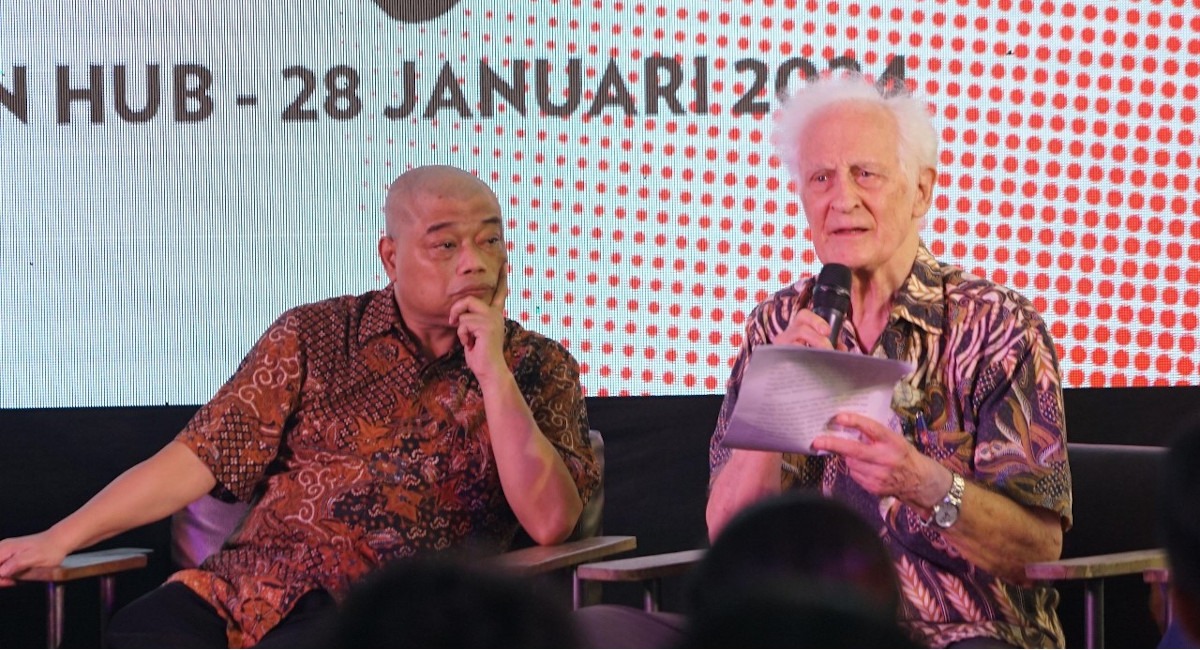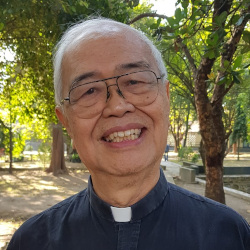
Fr Anton Benny Susetyo and Fr Franz Magnis Suseno SJ speak at an event organised by the Catholic community in Indonesia on the upcoming national elections
On 14 February, Indonesians will exercise their right to elect a new President and Vice President. As Christians—comprising 3.06 percent Catholics (about 8.5 million) and 10.48 percent Protestants (about 20.7 million)—we may wonder about the impact of our collective voice. While it is challenging to quantify our influence solely based on numbers, it is worth mentioning that two Catholic priests—Jesuit scholar Fr Franz Magnis Suseno, and diocesan priest and social activist, Fr Anton Benny Susetyo—have made a difference and have been frequently mentioned in the lead-up to the General Elections.
Ramlan Surbakti, a retired Catholic professor of Political Science at Airlangga University and a seasoned general election practitioner, notes that Fr Susetyo often articulates in popular form Fr Magnis’ philosophical reflections. Prof Surbakti takes pride in the fact that the voices of these Catholic priests resonate beyond the Catholic community.
The importance of having a democratic president and vice president cannot be understated. Fr Magnis encapsulated this sentiment with his memorable words in March 2014: “But we choose the less bad among the bad. Choose. In a democracy, someone has to choose.” These words were echoed in the 2019 General Elections and continue to reverberate in the 2024 elections, not only among Catholics but throughout the country and the Indonesian diaspora. Fr Magnis’ philosophical stance, conveyed through the phrase, “Elections are not to elect the best, but to prevent the worst from coming to power”, has become a moral compass, repeatedly quoted from the level of the Bishops’ Conference down to parishes in remote areas.
As a network in our Jesuit conference who actively engages with the challenges faced by victims of forced migration, human trafficking, and the less fortunate—in Indonesia where the impoverished constitute 9.36% or 25.9 million—we resonate with the significance of preventing the worst from attaining power. Consider the dire implications for these vulnerable populations under a governance marked by adversity; how can they experience the essence of democracy amidst such circumstances? The answer lies in our shared commitment to shaping a future that safeguards the principles of justice, compassion, and inclusivity.
In a recent election debate, one candidate brought up Pope Francis and the concept of “ecological conversion”. While it was uplifting to hear this term discussed on a national platform, it is crucial not to become complacent with its mere mention. Our ongoing efforts should be directed towards fostering a deeper understanding and acceptance of ecological conversion among both Catholics and the general public.
The hope is that, having introduced the term, subsequent discussions can delve into its substantive content. Ideally, this progression will pave the way for broader issues, such as human trafficking and environmental damage, to be included in the national agenda. It is through sustained advocacy and awareness that we can truly integrate these critical concerns into the public discourse and policy considerations.







